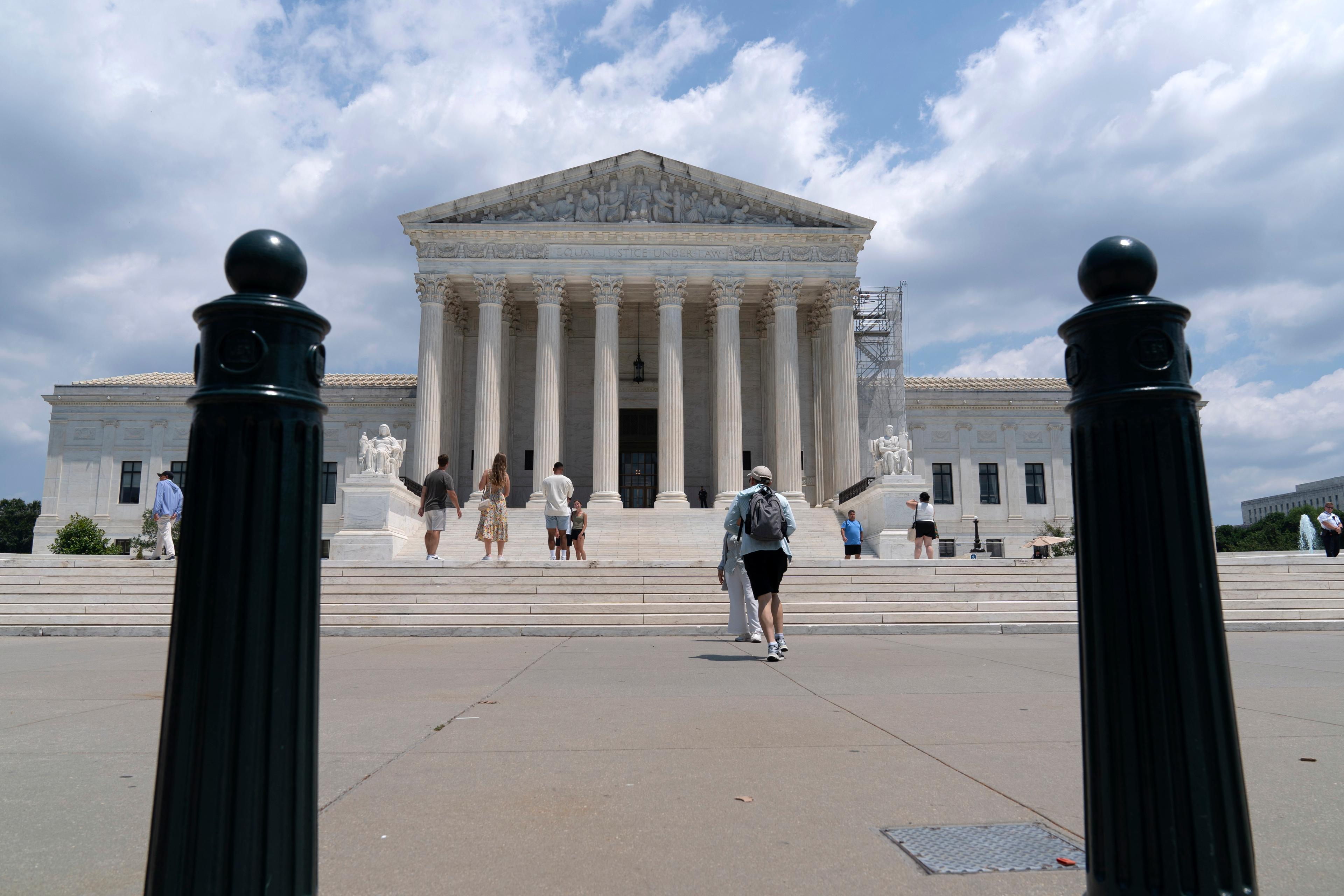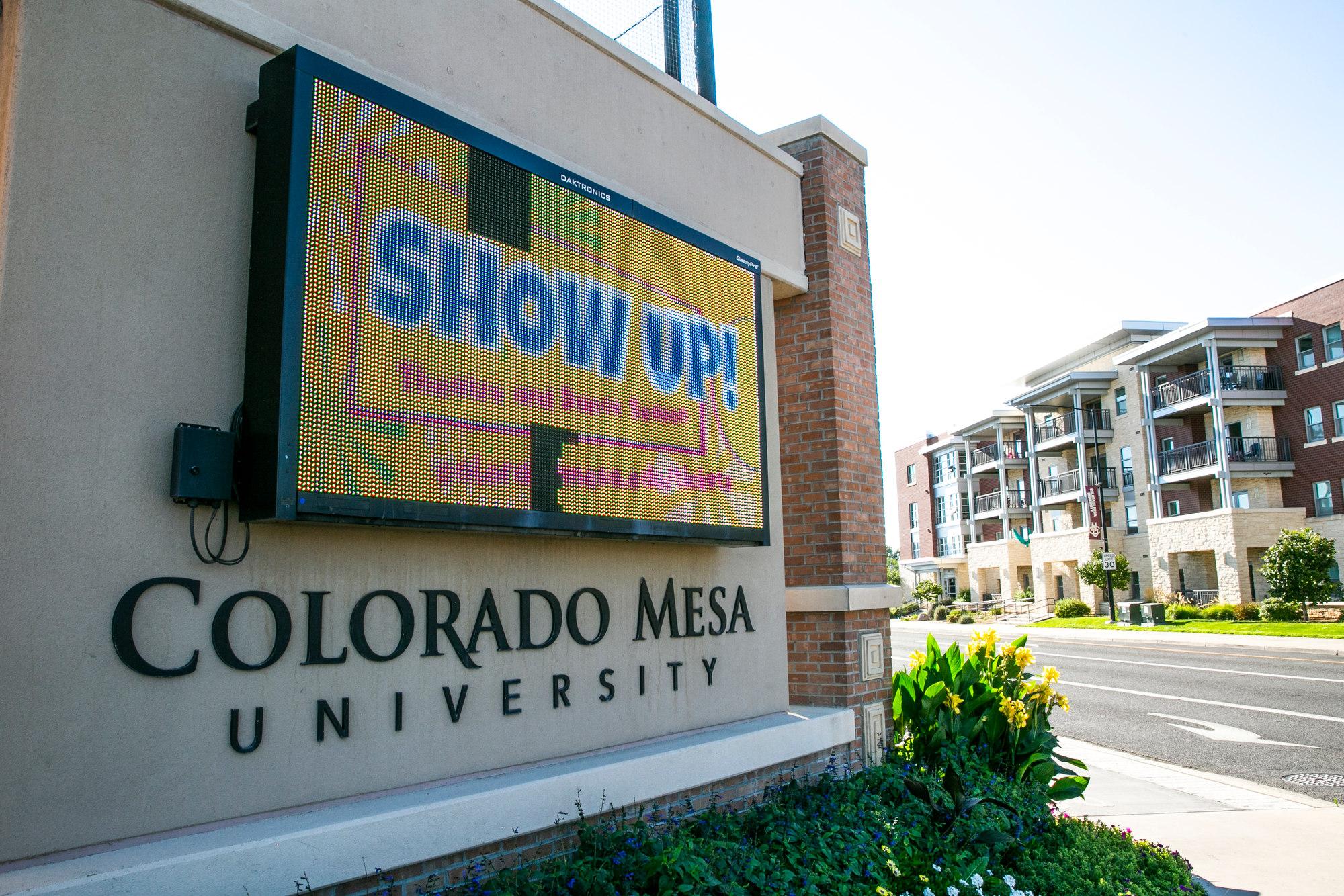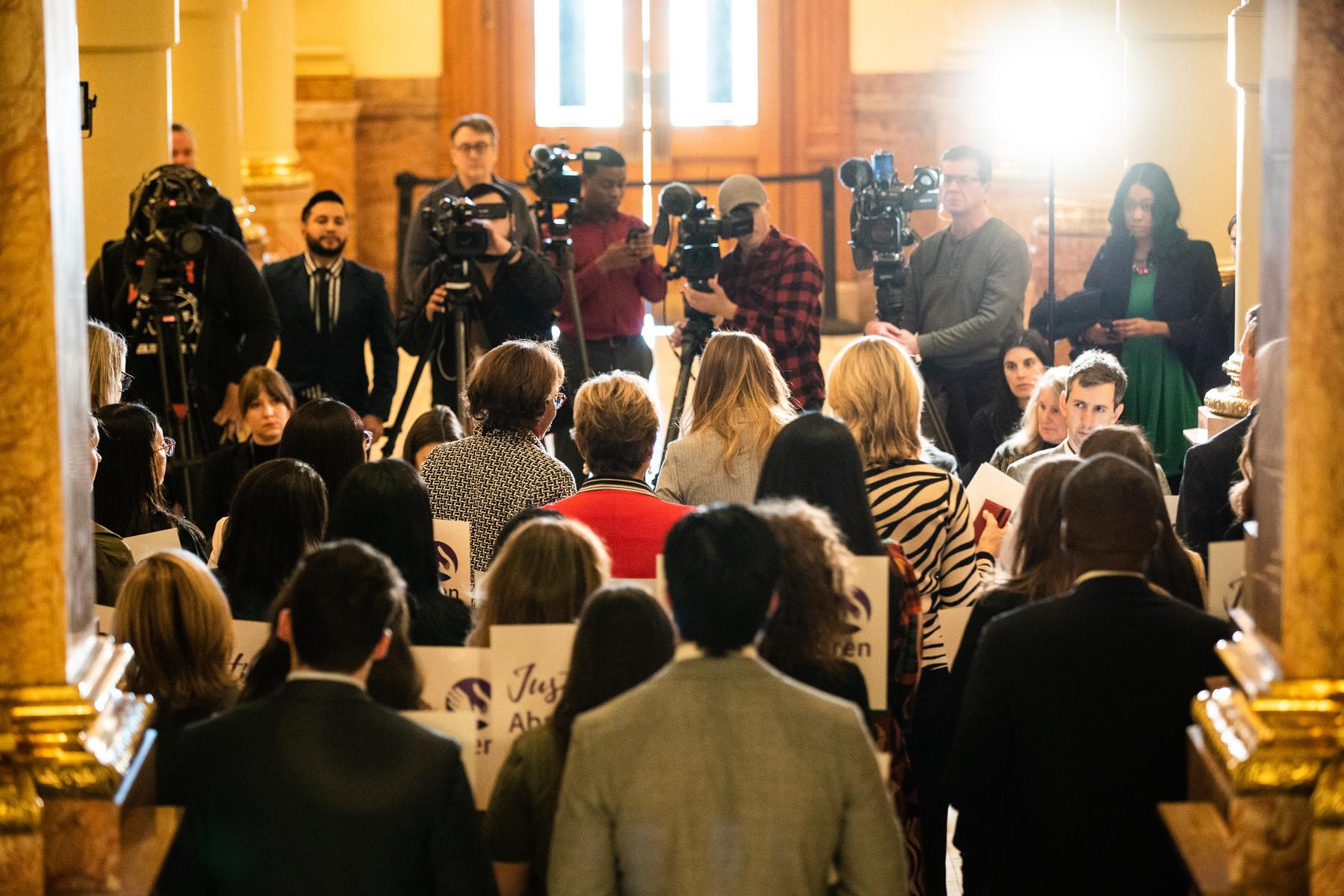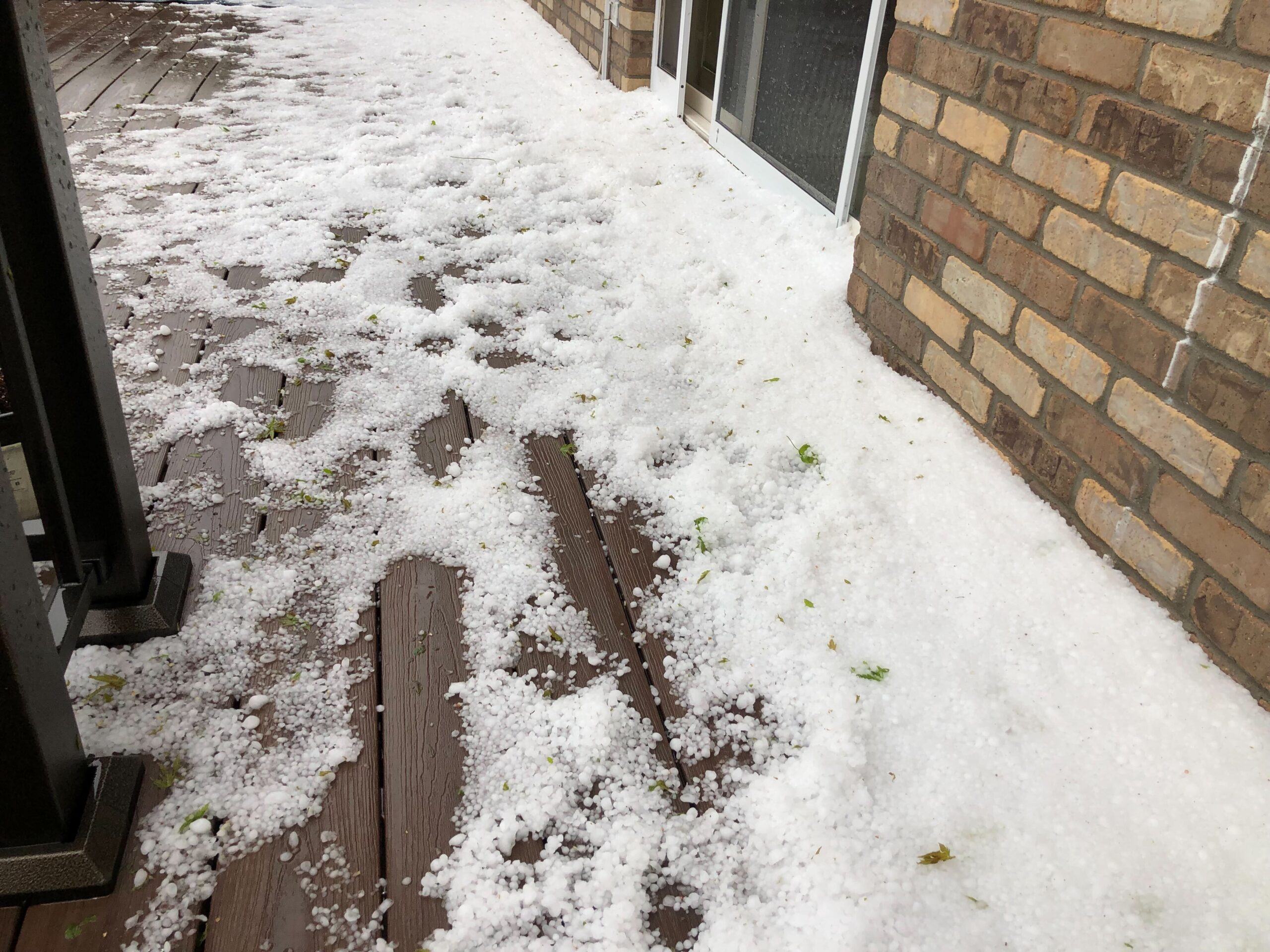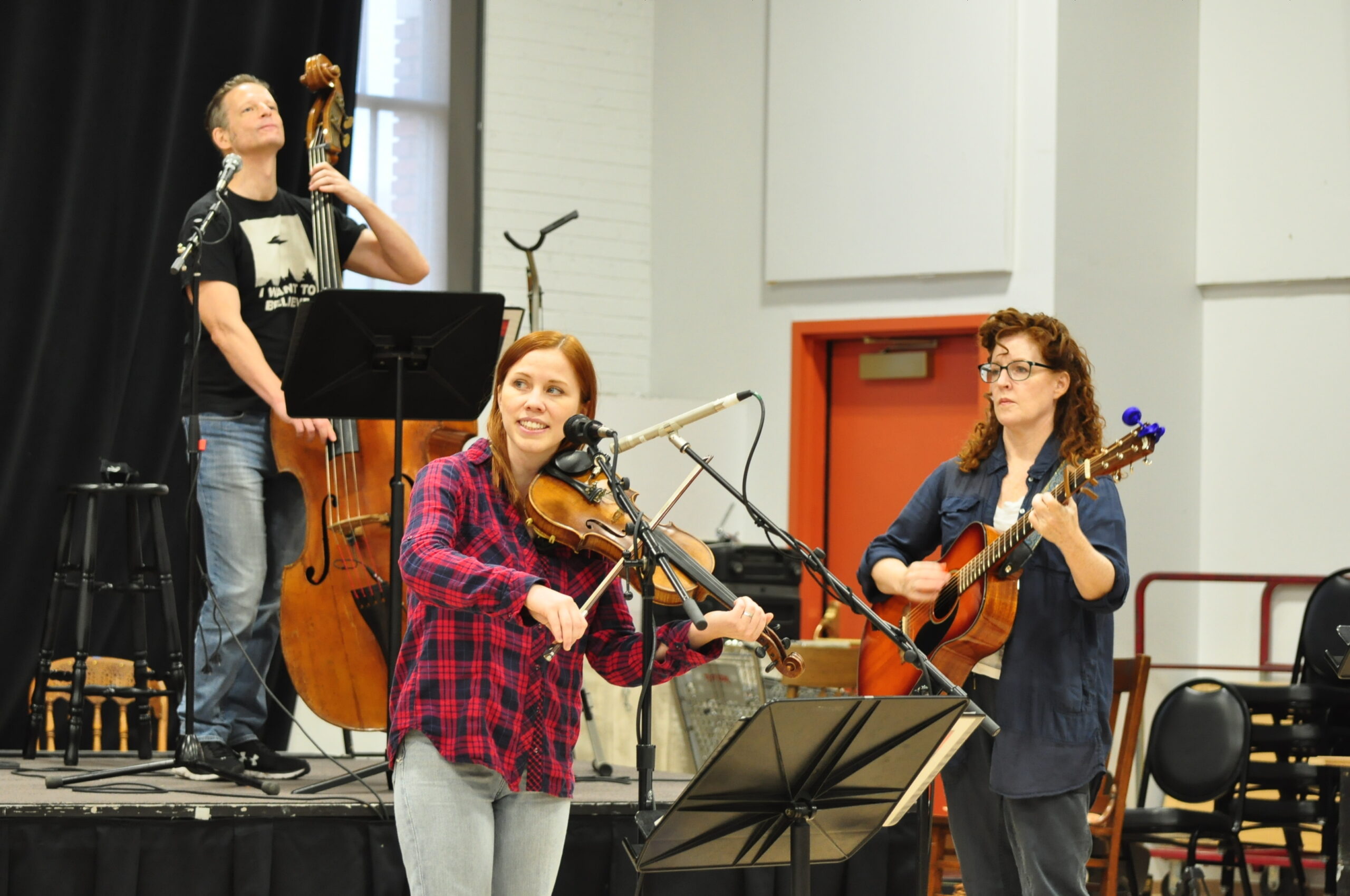
For the people of Grand County, Colorado, the East Troublesome Fire left a burn scar that’s deeper than just scorched earth.
It’s a wound playwright Jessica Kahkoska knows as well. She experienced her own close run-in with a wildfire back in 2013 when the Black Forest Fire burned around her parents’ home near Colorado Springs. It’s an experience that changed the landscape of her childhood and a memory that weighed on her mind while she was watching the news last year as large swaths of Colorado burned.
“I remember contemplating as a person in my young 20s, like how many different colors, the grief and the loss and the process of recovery and moving through something like that was,” Kahkoska said. “I think we have these impulses that theater can bring people together, hold space, slow time down and help people heal.”
For Kahkoska, that healing process led to the creation of “Wild Fire,” a new original musical based on the East Troublesome Fire. With fires burning hundreds of thousands of acres in the state over the past decade, this Colorado story is becoming more familiar in recent years. It’s affected every Coloradan in some way, including flash flooding and mudslides from burn scars and an air that’s perennially hazy from smoke.
Kahkoska worked with History Colorado’s Museum of Memory to interview survivors of the East Troublesome Fire with dramaturg Lynde Rosario. She then blended the experiences of 30 people to create a cast of new characters to represent a swath of Grand County. She used folk music from local artists to emphasize the show’s Colorado roots. The new production will even be performed outside as a nod to the state’s love of outdoor music. The company kept the set minimal so they could take the show on the road from Denver, including to Dillion in Summit County and Winter Park in Grand County.
Musical draws from wildfire survivors' experiences
Kahkoska said talking to survivors helped her bring their stories to life on the stage.
“We spoke with one young person who shared with us that when she was evacuating, she forgot shoes,” she said. “You know, she's running around, she got all her animals and backpack and to me like, that's true. That is how that goes.”
“Wild Fire” is also the first new production from the Denver Center for the Performing Arts since the pandemic tore up the theater’s schedule last spring. The group of actors and musicians have only been practicing together for a few weeks, but already, their rehearsals feel like a reunion. Through clear plastic masks, their smiles shine through as they tune instruments and warm-up for the show’s opening number.
In a large, cavernous rehearsal hall at the DCPA, actor Rob Morrison said coming back to rehearsals feels a little different than usual after over a year’s pandemic pause. “It's been strange coming back. It's a great feeling, but it definitely ... there's some cobwebs,” he said.
Other actors, like Morrison’s co-star Kendra Jo Brook, found that return to the stage to be surprisingly emotional.
“This rehearsal process has been kind of my first re-entry back into life, and I think maybe this people coming to the show might be one of their first re-entries,” she said. “I think those re-entries are more profound than we expect them to be, because we are so resilient. I think the re-entry is painful and emotional, but it's also really beautiful because it's just so unexpected.”
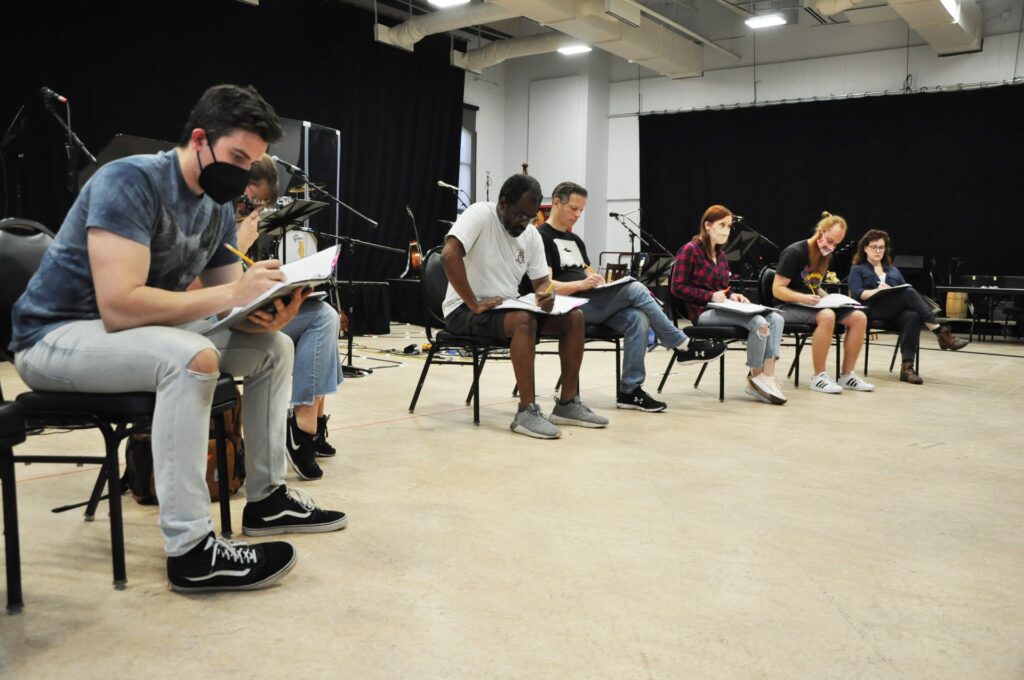
To actor and drummer Harold Summey, returning to the stage was not only a fun experience, it was also a vital one.
“It's sad that something like a pandemic has to remind us and remind everybody that we actually need these things,” he said. “It's not just an add-on, something to do on a Saturday or Sunday afternoon or something. We need to see experiences that other people have, so that we can live our lives better.”
As exciting as it’s been for these actors to work on a new show, actor Marco Robinson said their focus has also been on the climate crisis that sparks the story.
“It's even more pertinent right now because I hear that I-70 just got closed down because of the mudslide, which is as a result of the fires that happened last year,” he said. “We're still feeling the after effects.”
Playwright Kahkoska said she hopes the show helps humanize the people behind the wildfire headlines and shows how personal these disasters are for our neighbors.
“I think we are at a moment with climate change and with wildfires in Colorado, where we have to figure out new ways to start these conversations and to start big and imaginative and emotional conversations, because communicating in terms of acres and statistics, isn't going to do it,” Kahkoska said. “Climate change feels big or it feels global, but it's actually local and it's incredibly personal. We feel it in our hearts.”

